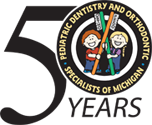At what age should my child first see a dentist?
Ideally, it is best to take your child to the dentist between six and twelve months of age. The earlier you begin, the better chance your dentist has to prevent problems. In addition to checking for decay and other problems, the dentist will teach you how to properly clean your child’s teeth daily, evaluate any adverse habits such as thumbsucking, and identify your child’s fluoride needs. By starting dental visits at an early age, you will help your child build a lifetime of good dental habits.
Why should I take my child to the dentist? The baby teeth are going to fall out anyway.
Your child’s first set of teeth, the primary teeth, are extremely important. Strong, healthy primary teeth help your child chew food easily, learn to speak clearly, and look good. Just as important, your child’s general health can be affected if diseased and broken primary teeth are not treated early. If a primary tooth is lost too soon, your child may need to wear a space maintainer until the permanent tooth erupts (comes through the gums). Otherwise the teeth beside it may tilt toward the empty space, causing the permanent teeth to come in crooked and possibly requiring lengthy and more expensive corrective treatment later.
How often should my child see the dentist?
While there is no set rule, it is generally recommended that children visit the dentist every six months. Because children’s dental needs differ, however, your dentist is best able to suggest a schedule of visits for your child. The frequency of dental visits will partly depend on your child’s eating habits, how clean his or her teeth are kept, and whether your child drinks fluoridated water. Taking your child to the dentist regularly can prevent serious dental disease. Preventive services such as fluoride treatments and sealants are less costly than the fillings, crowns, and other treatments that your child may need if the teeth are neglected. Regular dental visits can save time, money, and your child’s teeth.
Is there a better time of the day for my child to see the dentist?
Our dentists prefer to see young children in the morning. It has been proven that a well- rested child is more responsive and will cooperate better to provide for a pleasurable experience for all.
What will happen during my child’s first dental visit?
The dentist will gently examine your child’s teeth and gums, for tooth decay and other problems. He or she may also take X-rays of your child’s teeth to see whether the facial bones and teeth are developing properly and to find any hidden decay. If necessary, your child’s teeth will be professionally cleaned, or a follow-up appointment for cleaning will be scheduled. You will also learn important preventive home care skills to help your child’s teeth stay strong and healthy.
What should I tell my child about seeing the dentist?
Tell your child that the dentist is a friendly doctor who will help the child stay healthy. Talk about the visit in a positive, matter-of-fact way, as you would about any important new experience. A visit to the dentist can be a pleasant adventure for your child.
What steps are taken in this dental office to protect against the transmission of infectious disease?
We follow the infection control guidelines as outlined by the American Dental Association (ADA), the U.S. Centers for Disease Control (CDC), the Occupational Safety and Health Administration (OSHA) and the American Academy of Pediatric Dentistry. These measures feature the use of universal precautions throughout our office. The term “universal precautions” means that stringent infection control procedures are followed strictly with every patient to prevent the transmission of any disease.
Pointers for Parents
DON’T
- Bribe your child into going to the dentist.
- Use a dental visit as a punishment.
- Let the child know that you feel any anxiety about going to the dentist.
- Let anyone tell your child scary stories about dental visits.
DO
- Try to make dental visits enjoyable for your child.
- Let your child go into the treatment room alone, if that is what your dentist prefers.
- Set a good example by brushing and flossing your own teeth thoroughly every day and by visiting the dentist regularly.
Your dentist and other members of the dental staff can do a lot to protect your child from dental disease. By starting dental visits at an early age and making them regularly, you can help your child have strong, healthy teeth all throughout life.












